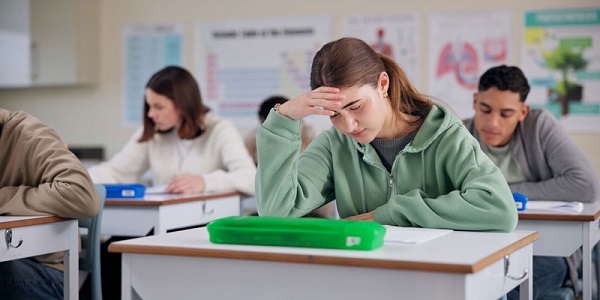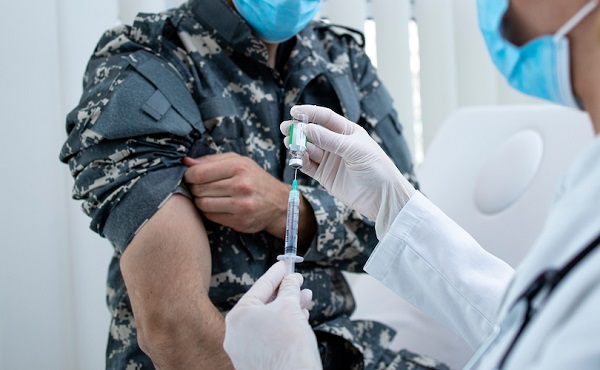Education
Red Deer Schools Celebrating Family Literacy Day Today! (Jan 27)
Written by Sheldon Spackman / Photos & Video by Lindsay Wiebe
It’s Family Literacy Day today and many of Red Deer’s schools are marking the occasion with various types of events that encourage reading and literacy. Among them, Fairview Elementary School in Red Deer’s Riverside Meadows neighbourhood.
Red Deer Public School officials say the whole school will be experiencing just how much fun using Literacy skills can be. Students will be taking part in the #readfor15rdpl challenge event. Every student will be partaking in 9 fun and inspiring Literacy Based Activities. Also the young, old and everyone between who are at the school that day will simultaneously read their favorite book for 15 minutes in the gym to celebrate Canada’s 150 birthday through the #readfor15rdpl challenge.
Principal Kim Walker says Fairview Elementary is also one of only four schools in the Red Deer Public School District to be piloting a School Literacy Coach this school year. Walker talks about the literacy events at the school and the importance of reading in this interview:
Elsewhere in the Red Deer Catholic Regional School District, several schools are also celebrating Family Literacy Day. Events and activities include:
École Our Lady of the Rosary School – Author Shane Hitchcock will visit the school at 2:00 p.m. to read to the entire school community.
- Holy Trinity Catholic School –Students are encouraged to dress as their favourite book character. “Celebrity” readers will be at the school starting at 9:00 a.m., and at 2: 30 p.m., parents are invited to read with their child in the hallways.
- St. Elizabeth Seton School– Families are invited to join their child and the school community for a picnic lunch, and are encouraged to bring their favourite books.
- St. Francis of Assisi Middle School– Grade 6 students will blog as part of their book club on this date.
- St. Martin de Porres School– The school is inviting families to the Family and Friends Literacy Hour (2:30-3:30 p.m.), in which families can come to the school and share in an hour of reading and writing with their children. Students can take some of that time to showcase their career writing that we have been working on as a school and of course, share in a good book together. For the two weeks leading up to this day, the school provided students with mystery book clues over morning announcements. Students entered guesses throughout the day and once student won a book each day, up until January 27.
- St. Patrick’s Community School– Reading buddies will get together throughout the day for activities and reading time.
Red Deer
Judge upholds sanctions against Red Deer Catholic school trustee who opposed LGBT agenda

From LifeSiteNews
Monique LaGrange was ousted last December from the Red Deer Catholic Regional Schools’ board for comparing the LGBT agenda targeting children to brainwashing.
A Canadian judge ruled that a school board was justified to place harsh sanctions on a Catholic school trustee forced out of her position because she opposed extreme gender ideology and refused to undergo LGBT “sensitivity” training.
Justice Cheryl Arcand-Kootenay of the Court of King’s Bench of Alberta ruled Thursday that the Red Deer Catholic Regional Schools (RDCRS) Board’s sanctions placed against former trustee Monique LaGrange will stand.
LaGrange had vowed to fight the school board in court, and it remains to be seen if she can take any further actions after the decision by Judge Arcand-Kootenay.
The judge ruled that the RDCRS’s policies in place for all trustees, which the board contended were breached, were “logical, thorough, and grounded in the facts that were before the Board at the time of their deliberations.”
As reported by LifeSiteNews, the RDCRS board voted 3-1 last December to disqualify LaGrange after she compared the LGBT agenda targeting kids with that of “brainwashing” Nazi propaganda. As a result of being voted out, LaGrange later resigned from her position.
The former school board trustee initially came under fire in September 2023 when she posted an image showing kids in Nazi Germany waving swastika flags during a parade to social media, with the bottom of the post showing an image of kids waving LGBT “Pride” flags along with the text: “Brainwashing is brainwashing.”
After her post went viral, calls for her to step down grew from leftist Alberta politicians and others. This culminated in her removal as director of the Alberta Catholic School Trustees’ Association (ACSTA).
In September 2023, the RDCRS passed a motion to mandate that LaGrange undergo “LGBTQ+” and holocaust “sensitivity” training for her social media post.
LaGrange, however, refused to apologize for the meme or undergo “sensitivity” training.
She had argued that the RDCRS had no right to issue sanctions against her because they were not based on the Education Act or code of conduct. Arcand-Kootenay did not agree with her, saying code of conduct violations allow for multiple sanctions to be placed against those who violate them.
Education
‘Grade inflation’ gives students false sense of their academic abilities

From the Fraser Institute
The average entrance grade at the University of British Columbia is now 87 per cent, up from 70 per cent only 20 years ago. While this is partly because the supply of available university spots has not kept pace with growing demand, it’s also likely that some B.C. high schools are inflating their students’ grades.
Suppose you’re scheduled for major heart surgery. Shortly before your surgery begins, you check into your surgeon’s background and are pleased to discover your surgeon had a 100 per cent average throughout medical school. But then you learn that every student at the same medical school received 100 per cent in their courses, too. Now you probably don’t feel quite as confident in your surgeon.
This is the ugly reality of “grade inflation” where the achievements of everyone, including the most outstanding students, are thrown into question. Fortunately, grade inflation is (currently) rare in medical schools. But in high schools, it’s a growing problem.
In fact, grade inflation is so prevalent in Ontario high schools that the University of Waterloo’s undergraduate engineering program uses an adjustment factor when evaluating student applications—for example, Waterloo might consider a 95 per cent average from one school the equivalent of an 85 per cent average from another school.
Grade inflation is a problem in other provinces as well. The average entrance grade at the University of British Columbia is now 87 per cent, up from 70 per cent only 20 years ago. While this is partly because the supply of available university spots has not kept pace with growing demand, it’s also likely that some B.C. high schools are inflating their students’ grades.
Sadly, grade inflation is so rampant these days that some school administrators don’t even try to hide it. For example, earlier this year all students at St. Maximilian Kolbe Catholic High School in Aurora, Ontario, received perfect marks on their midterm exams in two biology courses and one business course—not because these students had mastered these subjects but because the York Catholic District School Board had been unable to find a permanent teacher at this school.
The fact that a school board would use grade inflation to compensate for inadequate instruction in high school tells us everything we need to know about the abysmal academic standards in many schools across Canada.
And make no mistake, student academic performance is declining. According to results from the Programme for International Assessment (PISA), math scores across Canada declined from 532 points in 2003 to 497 points in 2022 (PISA equates 20 points to one grade level). In other words, Canadian students are nearly two years behind on their math skills then they were 20 years ago. While their high school marks are going up, their actual performance is going down.
And that’s the rub—far from correcting a problem, grade inflation makes the problem much worse. Students with inflated grades get a false sense of their academic abilities—then experience a rude shock when they discover they aren’t prepared for post-secondary education. (According to research by economists Ross Finnie and Felice Martinello, students with the highest high school averages usually experience the largest drop in grades in university). Consequently, many end up dropping out.
Grade inflation even hurts students who go on to be academically successful because they suffer the indignity of having their legitimate achievements thrown into doubt by the inflated grades of other students. If we want marks to have meaning, we must end the practise of grade inflation. We do our students no favours when we give them marks they don’t really deserve.
Just as our confidence in a surgeon would go down if we found out that every student from the same medical school had a 100 per cent average, so we should also question the value of diplomas from high schools where grade inflation is rampant.
Author:
-

 ESG2 days ago
ESG2 days agoCan’t afford Rent? Groceries for your kids? Trudeau says suck it up and pay the tax!
-

 John Stossel2 days ago
John Stossel2 days agoGreen Energy Needs Minerals, Yet America Blocks New Mines
-

 Alberta2 days ago
Alberta2 days agoProvince considering new Red Deer River reservoir east of Red Deer
-

 Daily Caller2 days ago
Daily Caller2 days agoLos Angeles Passes ‘Sanctuary City’ Ordinance In Wake Of Trump’s Deportation Plan
-

 Addictions2 days ago
Addictions2 days agoBC Addictions Expert Questions Ties Between Safer Supply Advocates and For-Profit Companies
-

 Aristotle Foundation1 day ago
Aristotle Foundation1 day agoToronto cancels history, again: The irony and injustice of renaming Yonge-Dundas Square to Sankofa Square
-

 armed forces1 day ago
armed forces1 day agoJudge dismisses Canadian military personnel’s lawsuit against COVID shot mandate
-

 Business18 hours ago
Business18 hours agoCBC’s business model is trapped in a very dark place






